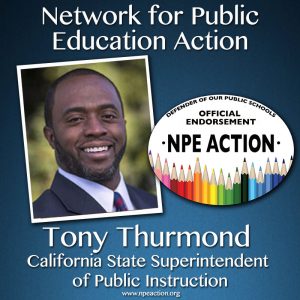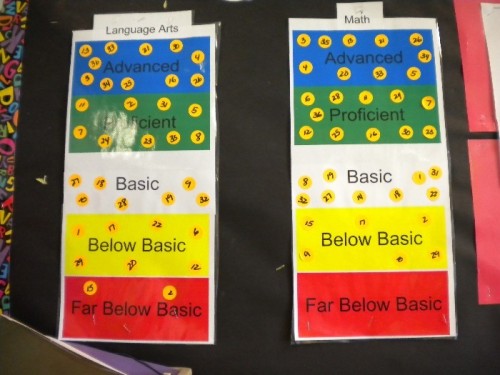Muchas escuelas de EEUU pueden enseñar lo que quieran. Resulta que enseñan mentiras
Many schools in the US can teach whatever they want. It turns out that they teach lies
The schools with programs of bonuses to the parents, for which the secretary of Education Betsy DeVos advocates, teach creationism, racism and sexism.
PORTLAND, Oregon (USA). - It was the last hours of the morning in an artistic cafe. The smell of coffee and baked goods sweetened the air. Ashley Bishop was sitting at a table, remembering a time when she had been taught that the majority of secular American society was worthy of contempt.
Having grown up in private evangelical Christian schools, Bishop saw the world in a polarized way, good and evil, heaven and hell. He had been taught that dancing was sin, that homosexuals were pedophiles and that mental illness was a function of satanic influence. The teachers in their schools spoke of slavery as black immigration and the instructors described the ecologists as "hippy witches."
Bishop's family moved from one place to another while she was little, but they always enrolled her in evangelical schools.
So when Bishop left school in 2003 and entered the real world at age 17, she felt like she was an alien who was landing for the first time on planet Earth. Having been separated from the dominant society, she was unable to manage the labor market and develop secular friendships. And, since he lacked shared cultural and historical references, he spent most of the twenties hiding in his room with an overwhelming social anxiety.
He had been taught that dancing was sin, that homosexuals were pedophiles and that mental illness was a function of satanic influence.
Muchas escuelas de EEUU pueden enseñar lo que quieran. Resulta que enseñan mentiras
Los colegios con programas de bonos a los padres, por las que aboga la secretaria de Educación Betsy DeVos, imparten creacionismo, racismo y sexismo.
PORTLAND, Oregón (EE UU). ― Eran las últimas horas de la mañana en un café artístico. El olor del café y los productos horneados endulzaban el aire. Ashley Bishop estaba sentada frente a una mesa, recordando una época en la que le habían enseñado que la mayoría de la sociedad secular estadounidense era merecedora de desprecio.
Al haber crecido en escuelas cristianas evangélicas privadas, Bishop veía el mundo de una forma polarizada, el bien y el mal, el cielo y el infierno. Le habían enseñado que bailar era pecado, que los homosexuales eran pederastas y que la enfermedad mental era una función de la influencia satánica. Los maestros de sus escuelas hablaban de la esclavitud como la inmigración negra y los instructores calificaban a los ecologistas como "brujas hippies".
La familia de Bishop se trasladó de un lugar a otro mientras ella era pequeña, pero siempre la matriculaban en escuelas evangélicas.
Así que cuando Bishop dejó la escuela en 2003 y entró en el mundo real a los 17 años, se sintió como si fuera una extraterrestre que aterrizaba por primera vez en el planeta Tierra. Al haber sido separada de la sociedad dominante, se vio incapaz de manejar el mercado de trabajo y desarrollar amistades seculares. Y, puesto que carecía de referencias culturales e históricas compartidas, pasó la mayor parte de la década de los veinte años escondida en su habitación con una agobiante ansiedad social.
Le habían enseñado que bailar era pecado, que los homosexuales eran pederastas y que la enfermedad mental era una función de la influencia satánica.
Ahora, a los 31, se ha convertido en todo lo que una vez le enseñaron a odiar. Comparte un apartamento con su novia, con la que lleva dos años. Va a terapia y toma medicamentos para la depresión, un problema que nace, en parte, de su asfixiante educación.
























